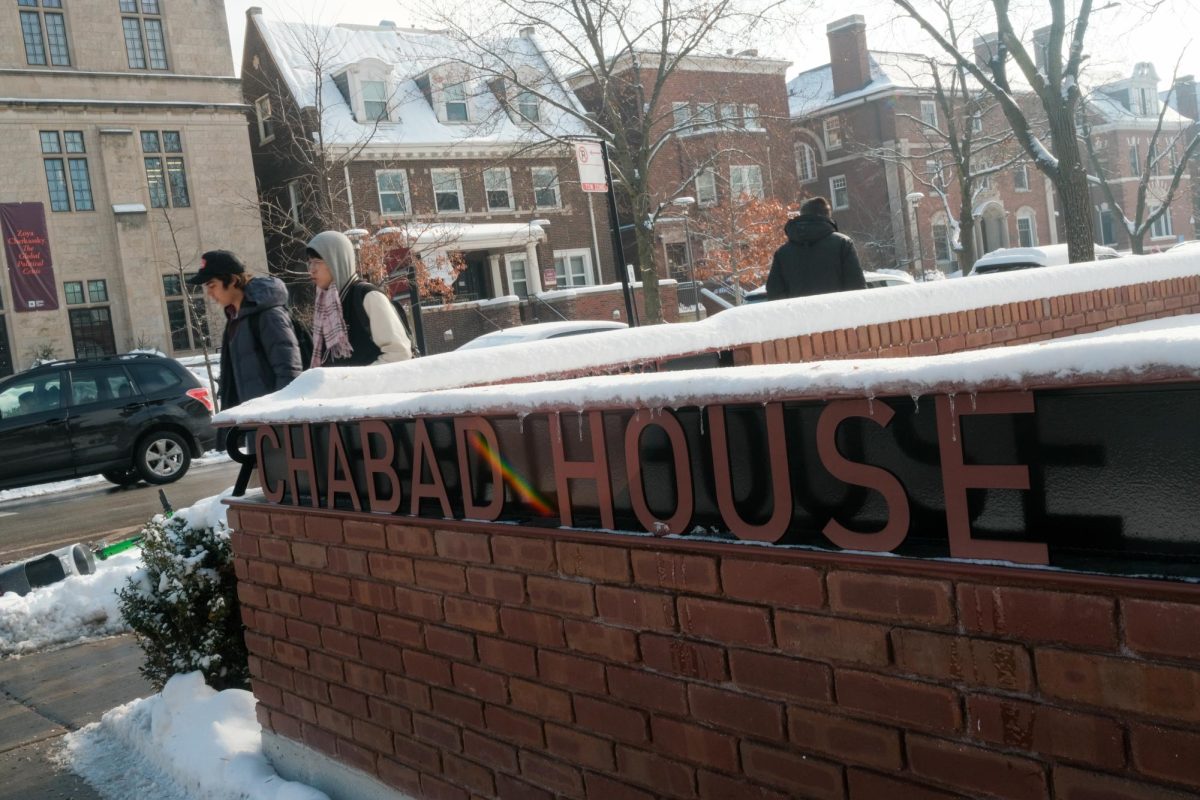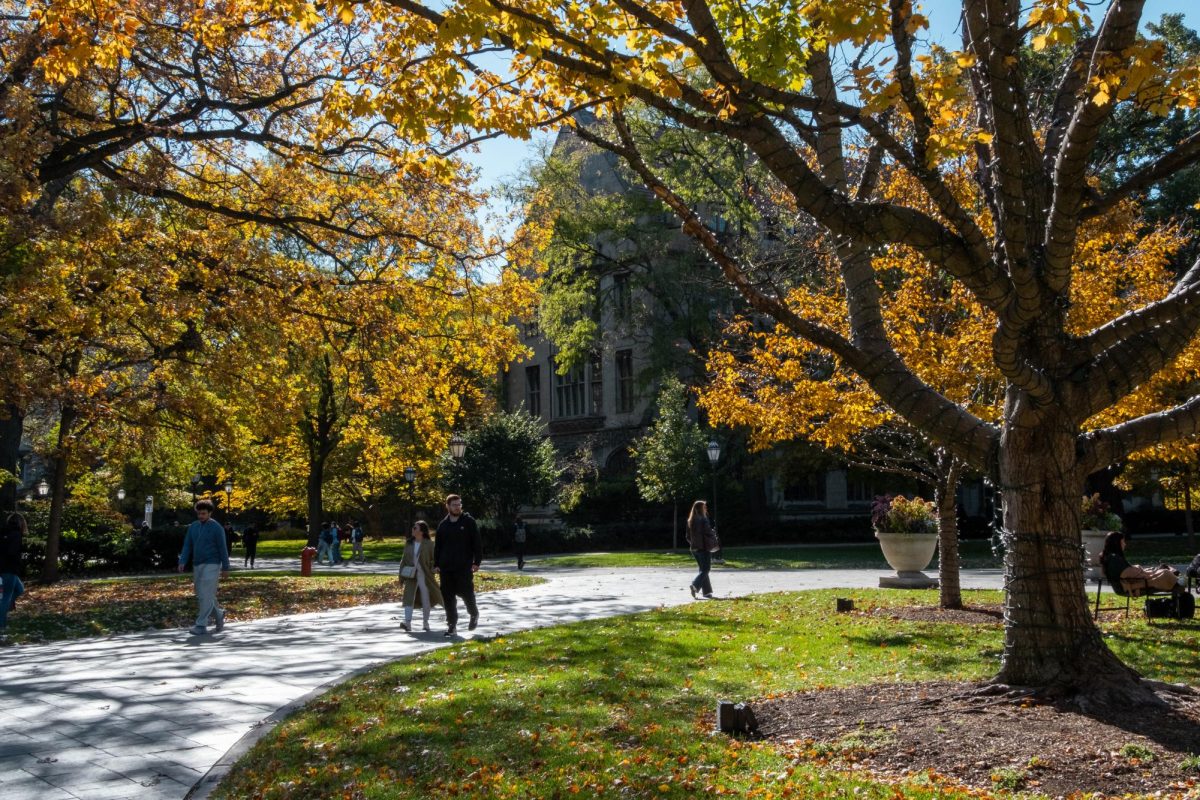Good morning. It’s tenth week.
There are only two more days of classes, and tents are going up on the quad for graduation. After this week, you’ll be seeing us in your inbox less often—expect one e-mail per week until classes resume in the fall.
** Sophie is graduating! Sadly, that means this is her last newsletter. You can read her parting reflections about four years as a copy editor here. We will miss you next year.
Robert J. Zimmer has agreed to continue as President of the University of Chicago until at least 2022. The announcement came after the Board of Trustees’ quarterly meeting last Thursday.
Lauren Petersen, a graduating fourth-year, came in the top five of a New York Times college essay contest on “modern love” that received 2,000 submissions. Her piece is about a six-week fling that started on Bumble—a dating app on which only women can message first—and the “unspoken rules” of swipe-right relationships.
2015–16 disciplinary actions: At the end of last month the University released a summary of the disciplinary actions it took last academic year.
- In total: 67 disciplinary committees convened to hear allegations against 64 students who were accused. 34 of the accused students were in the College.
- The Booth School had 29 hearings for 27 students. These are unprecedented numbers, at least in recent years—Booth usually hears only a handful of cases. Almost all of these hearings were for plagiarism or copying.
- A College student was expelled for “using a variety of email aliases to impersonate administrators and business units at the University.” The student had already been suspended for a separate allegation.
- Five cases were covered by a different disciplinary system that covers sexual misconduct and harassment. Two students were not found responsible for sexual assault. Only one accused student was sanctioned with a suspension (two quarters). The report could add fuel to a point sometimes made by campus activists that disciplinary outcomes for plagiarism are often more severe than those for sexual assault.
‘I See a Darkness:’ David Alm (A.M. ’03) became friends with Richard Spencer (A.M. ’03) when they were in UChicago’s Master of Arts Program in the Humanities, a one-year graduate program that enrolls about a hundred students. For Point Magazine, Alm recalls how Spencer went from being a contrarian in Alm’s friend group who debated free will over beers at the Pub to the face of white nationalism.
Moving on: Neil Guterman, dean of the School of Social Service Administration, will serve as the dean of NYU’s Silver School of Social Work starting in September.
——
IN VIEWPOINTS
Editor Cole Martin writes in:
Graduate students in the Biological and Physical Sciences Divisions write in to express their frustration with the University administration and their support for student unionization.
Reflecting on Asian American Heritage Month, columnist Annie Geng explores her own identity and takes issue with the pervasive “model minority” stereotype imposed on Asians. “At the end of the day, it still seemed as though I could only be one thing: I could only be the perfect model minority that was expected of me, with all its unyielding standards.”
——
IN ARTS
Editor Alexia Bacigalupi writes in:
A dystopian future setting was not the only bold change in UT/TAPS’s adaptation of King Lear.
The ’90s cult classic Twin Peaks returns to the small screen, and David Lynch hasn’t lost his touch.
An artist in Puerto Rico brings hope and awareness to an overlooked neighborhood with his colorful large-scale murals.
Don’t let the rapidly approaching finals week get you down. Check out this week’s Exhibit [A] for exciting excuses to ditch the Reg.
——
IN SPORTS
Editor Cavell Means writes in:
In men’s tennis, a first-year doubles duo and a third-party spectacular singles player reached the semifinals of the NCAA tournament.
On the track, four speedy relay racers on the women’s team won All-American honors at their championship.
——
A developer has plans to open a restaurant in the 63rd Street beach house, according to DNAInfo. Reggies, a bar and grill with a location at East 21st Street and South State Street, will bring live music, paddleboarding, and WaveRunners to the beach.
Omri Ben-Shahar, a Law School professor, presents a case against graduate student unionization in Forbes. “If universities have to pay students more per task, they would offset this cost by paying smaller stipends for living expenses. … If unions do manage to increase overall benefits, universities might admit fewer students.”
On Thursday, National Legal Director of the American Civil Liberties Union David Cole is giving an annual lecture hosted by the University’s human rights center.
In The Gate: How Illinois’s Voter Turnout Crisis Cost Democrats the Governor’s Seat.
We have two corrections to Friday’s newsletter.
- A blurb stated that “College Council voted to issue a statement to the admin in support of graduate student unionization.” CC’s statement sided with Graduate Students United’s argument in an NLRB hearing on whether graduate students can vote to unionize, but CC’s statement did not endorse GSU’s pro-unionization stance.
- IOP Fellow Steven Greenhouse is a former, not current, New York Times labor reporter.
OTHER HEADLINES








